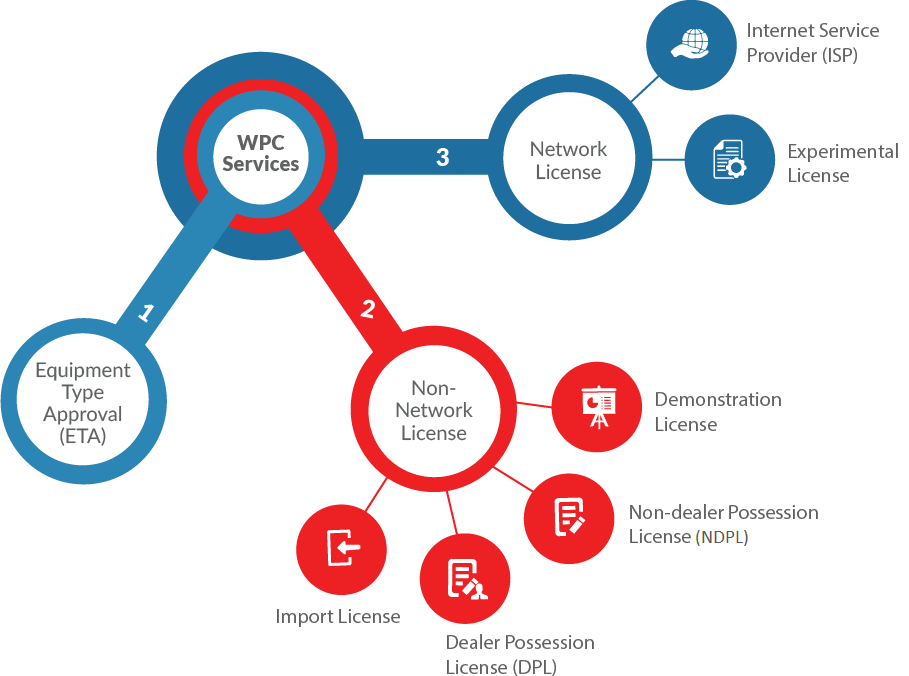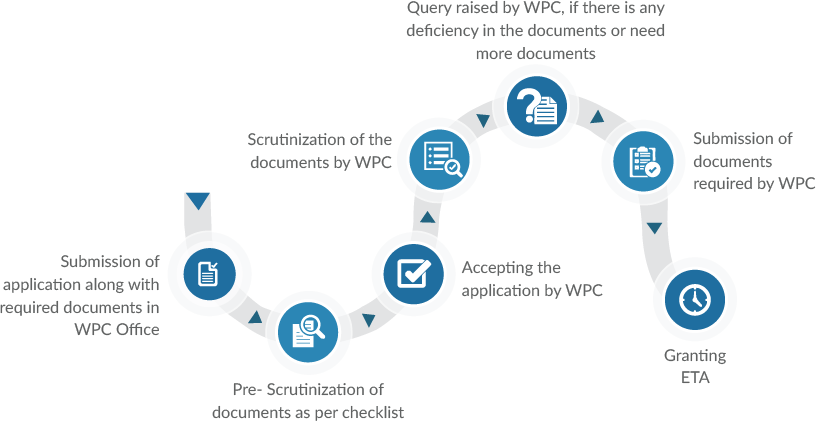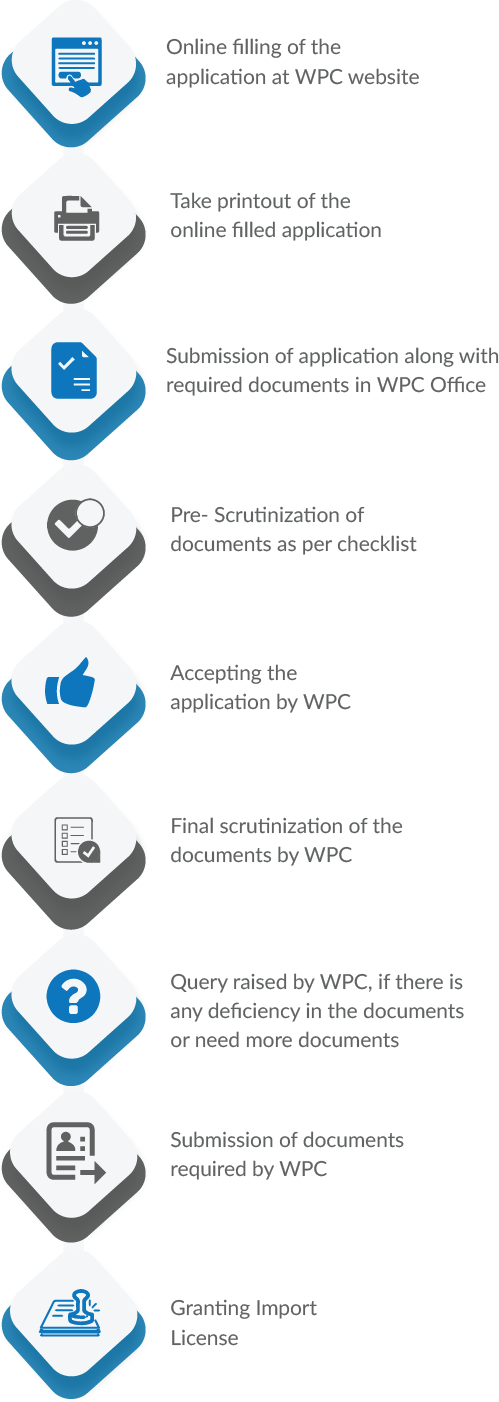Introduction
The Wireless Planning and Coordination (WPC) is a wing of the Department of Telecommunications (DoT) of the Ministry of Communications and Information Technology of the Indian Government. WPC is responsible for regulating the use and application of radio and wireless devices imported or manufactured in India. WPC issues Network, Non-Network and Equipment Type Approval for use in India. All types of wireless services and devices fall under the licensing authority of WPC. Some of which include GSM, FM Broadcasting, Radar, Satellite Broadcast, RC flying toys, Dealer Possession License etc. WPC also regulated the import of wireless equipment for business applications or demonstration.

Equipment Type Approval
Equipment Type Approval (ETA) is an approval that has to be obtained from WPC before importing any wireless device into India which doesn’t require a WPC License and functions in the de-licensed frequency band.. Such equipments include products like bluetooth devices, mobile phones, wi-fi technology, RFID and others. Some frequency bands have been assigned a license-free status so one doesn’t need to have a license from WPC for products operating in those frequencies. Furthermore, to obtain an ETA, a detailed test report of the equipment obtained from a well-recognized laboratory has to be submitted to WPC for evaluation. We help our clients with testing of their equipment and obtaining the test report in proper format for submission to WPC. The timeframe for this entire process to complete is around two to three weeks.
Application Flow/Procedure

Once an application submitted at the WPC office, the documents are pre-scrutinized by the authority. Once WPC accepts the application it checks the documents and raises any query if needed. Upon further rectification by the applicant, WPC undergoes a fair procedure and grants the ETA.
Non-Network License
A non-network license is granted to a non-network provider such as a cable TV distributor. Network licenses are related to frequency allocation and creation of a broadcasting station. Whereas a non-network provider uses or re-transmits existing network waveband and uses pre-allocated frequencies.

Import License
Once an ETA license has been granted to an equipment, it still has to obtain an import license if it is required or intended to be imported in India. This import license has to obtain from WPC. Once the WPC grants ETA to an equipment it needs to be added to the equipment library. A predefined Performa is available to fill up the details and submit it to WPC. We help our clients in filling up this Performa and completing other essential procedures for obtaining the import license. An import license can be obtained in one or two weeks.
Application Flow/Procedure


DPL
A Dealer Possession License (DPL) is issued to the prospective dealers and distributors of wireless products. DPL forbids people and companies from possessing, transferring or selling any wireless devices or similar telegraphy apparatus to any other person or organization also not holding a valid license. Obtaining DPL is a tedious task, and we help our clients in obtaining it within the minimal time and least effort.

NDPL
The Non-Dealer Possession License (NDPL) is allocated to a person or company which is neither a dealer of wireless products, nor holds any other license from WPC but still propose to hold wireless equipment in their possession. A very good example of people holding NDPL license are local cable TV operators. There are 34 nodal offices of DoT across India authorized to issue an NDPL.

DEMONSTRATION LICENSE
A demonstration license is a non-network type of license issued to a person or company which intends to demonstrate any wireless equipment. A demonstration license can be issued by five regional offices located in Delhi, Kolkata, Chennai, Mumbai and Guwahati. A person applying for a demonstration license must already possess a valid DPL license. If not then the applicant needs to apply for a DPL license first.
Network License
A network license is allocated to a company aiming to use the limited radio frequency resources of the country for providing communication related services such as mobile networks, Satellite and DTH. A network license is related with frequency allocation and the creation of stations for broadcasting and transmission. Obtaining a network license is a tedious and complex procedure because of the level of operations and the scale of involved resources. Our technical teams are well versed and experienced in helping our clients obtain a license easily and quickly.

Internet Service Provider (ISP) License
Any company vying to provide internet services in the country must obtain an ISP license from the Department of Telecommunications (DoT). Based upon the scale and area of service ISP licenses have been divided into three categories A, B and C. Category A service area covers the whole of India. Category B service area covers all 20 Territorial Telecom Circles and 4 Metro cities. Four other major cities (Ahmedabad, Bangalore, Hyderabad, Pune) are also included in category B other than the metro cities. Category C service area refers to Secondary Switching Areas (SSA) as defined by the DoT.

Experimental License
As the name suggests, any person or company which intends to conduct experiments or research on wireless equipments must obtain an experimental license from WPC authority. It falls under the category of a network license. Prior to applying for this license, an applicant is required to already possess a Dealer Possession License. If not then the applicant needs to apply for a DPL first. Experimental Licenses are issued by five regional offices located in Delhi, Kolkata, Mumbai, Chennai and Guwahati.
